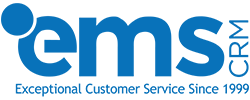
Understanding Agent Metrics: The Key to Empowering Your Call Center Team
In the fast-paced world of customer service, agents are the heartbeat of any contact center. They deliver the personalized assistance that customers crave, and while technology like bots and AI plays an increasingly significant role, the human touch remains irreplaceable. For agents, knowing how they’re performing is crucial to their success and job satisfaction. So, what metrics should we focus on to empower our agents?
The Importance of Transparency in Performance Standards
Every agent wants to understand their performance, and it’s up to management and team leaders to define clear performance standards. Best practices dictate that these standards be communicated transparently. By sharing what metrics matter and why they are essential, agents can align their efforts with organizational goals.
Key Metrics Every Agent Should Track
Here’s a breakdown of the metrics that can help agents gauge their performance and drive improvement:
- Login Time: How promptly agents log in to start their shifts.
- Available Time: The time spent ready to take calls.
- Busy/Not Ready Time: Time spent on calls versus unavailable for service.
- Talk Time: Duration of conversations with customers.
- Wrap Time: Time taken to complete post-call tasks.
- Hold Time: Time customers spend on hold during calls.
- Status States: Tracking time spent on breaks, training, or coaching.
- Schedule Adherence: How well agents stick to their assigned schedules.
- Average Talk Time: The typical length of calls.
- Average Hold Time: How long customers wait on hold, on average.
- Average Handle Time: Total time spent managing customer interactions.
- First Contact Resolution (FCR): The percentage of issues resolved on the first interaction.
- Quality/Compliance Score: How well agents adhere to company standards and quality measures.
- CSAT/NPS Score: Customer satisfaction and net promoter scores reflect customer feedback.
- In sales-focused environments, additional metrics like sales opportunities, conversions, and revenue generated are also crucial.
Why Sharing Metrics Matters
Agents want to know how they stack up against goals, expectations, and their peers. Sharing these metrics fosters a culture of accountability and improvement. When agents are aware of their performance data, they can take proactive steps to enhance their skills or seek help when needed.
The Impact of Metrics on Coaching and Development
The first eleven metrics provide insight into time management and operational efficiency, helping agents understand how they perform against their peers. If someone is lagging, targeted coaching can help them catch up. Conversely, those excelling can be recognized and benchmarked for best practices.
The final three metrics—FCR, Quality/Compliance, and CSAT/NPS—offer a window into the effectiveness of agents in fulfilling their roles. They not only reflect time management but also the quality of the customer experience being delivered.
Conclusion
Empowering agents with performance metrics is not just about tracking numbers; it’s about creating an environment where they can thrive. By fostering transparency and sharing essential metrics, call centers can cultivate a motivated team that strives for excellence. Ultimately, investing in agent performance leads to better customer experiences and a stronger organization overall. Let’s commit to understanding and utilizing these metrics for a more effective, engaged, and satisfied workforce!
For more insights into optimizing your contact center, stay tuned to emscrm.com!

HIPAA and Healthcare Call Centers: What You Need to Know
Why Secure Communication Matters in Every Patient Interaction In healthcare, clear communication and patient privacy go hand in hand. That’s why HIPAA compliance is essential

The Human Touch: Why Empathy Still Matters in Call Centers
Why Secure Communication Matters in Every Patient Interaction In a world where automation and AI handle more customer service tasks than ever, it’s easy to

Why Secure Communication Matters in Every Patient Interaction
Why Secure Communication Matters in Every Patient Interaction In healthcare, communication is key — but so is protecting the sensitive information patients share. As the

How Healthcare Call Centers Are Transforming the Patient Experience in 2025
How Healthcare Call Centers Are Transforming the Patient Experience in 2025 In 2025, healthcare call centers are no longer just a support system — they

Work From Home Opportunity: Join Our Call Center Team in Omaha, NE
Work From Home Opportunity: Join Our Call Center Team in Omaha, NE Are you looking for a flexible, fast-paced work-from-home opportunity in customer service? Our

EMS Healthcare Call Center Services, Part 2
EMS Healthcare Call Center Services, Part 2 Comprehensive Solutions for Your Needs Expand Your Healthcare Call Center with EMS’ Tailored Services EMS offers a broad
